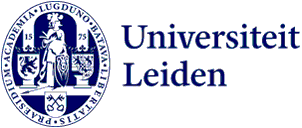Autism with borders
Autistic people have problems communicating their borders towards the non-autistic community and often do not feel respected. To not only change daily life for autistic people, but also the scientific community from within Carolien Rieffe (Developmental Psychology) addresses this issue in her research group, collaboratively with autistic people, like Jill Hoogerwerf.

This year, the theme of the Autism Acceptance Week is borders. In studies on friendship in children and adolescents with and without autism, borders is a central theme. Developmental psychologist Carolien Rieffe: 'It turns out that many young people with autism have different needs and desires in their friendships compared to non-autistic people, yet, these borders are not always accepted nor respected. However, many researchers are not aware of this either and often set (implicit) norms based on a non-autistic population when designing their study or choosing instrument to measure the concepts they want to study, like friendship. I don’t want to say that I have the right answers, but it is important to be aware of this, and we learn day by day, me included.'
Working with people from the autistic community is a necessity to do our work well.
Co-design and co-creation
‘We try to have researchers involved in our lab, representing the communities that we study, so we not only talk about, but actually talk with different people who know also from the insiders perspective', says Rieffe when explaining why she thinks that research teams should work harder to embrace diversity and also be socially inclusive themselves. 'Our project The Breaking the Cycle is for example embedded within the AWA (Academic Workplace Autism) and FANN (Female Autism Network Netherlands). In this project, we include focus groups of young people with autism to share their experiences, but more importantly, explain what they think is important and worthwhile addressing.'
Research questions thus are formulated based on theoretical and empirical knowledge, but also including these insiders perspectives', according to clinical psychologist Els Blijd-Hoogewys en child and adolescent psychiatrist Robert Vermeiren.

Jill Hoogerwerf via Instagram
'I also follow many autistic women on Instragram', Rieffe continues, 'and I read daily their comments and discussions. This inspired me to ask one of them, Jill Hoogerwerf, as a co-author on one of papers that is just now accepted for publication in the Dutch Science Journal for Autism. I was so happy she accepted and contributed to this paper.'
Rieffe, C., Blijd-Hoogewys, E., Hoogerwerf, J. & Vermeiren, R. (in press). Vrienden als je autisme hebt; lust of last? Wetenschappelijk Tijdschrift Autisme
Friends
A common misperception among non-autistic people, including many researchers, is that autistic youngsters have no desire for social contacts or friendships. Rieffe: 'This idea is false, but the non-autistic community should ask themselves why many young people with autism indeed prefer to stay alone, because it might very well be that this is a negative choice. In other words, if it is too much effort to fit in, trying to behave “non-autistic” in order to “fit in”, avoid being neglected or even bullied, it might indeed be preferable to stay alone.'
Yet, social belonging is crucial for our mental health, our daily functioning to most of us, autism or no autism. A sense of social belonging helps to feel safe, welcome, respected, and above all, valued for who you are, not for who others want you to be. This might come with different goals in friendships when we look at children and adolescents with or without autism.
'I like to see my friends, but not too often.'
Jill Hoogerwerf: 'Because it would take too much of my energy. They know and respect that. And don’t expect me to remember your birthday. But to me, these aspects are unrelated to the quality of our friendship.'
2 april - 9 april: Dutch Autism Week 2022
2 april: World Autism Awareness Day en start of the Autism Week of the Nederlandse Vereniging voor Autisme (NVA). The theme is borders.
NVA Autismeweek (in Dutch)
